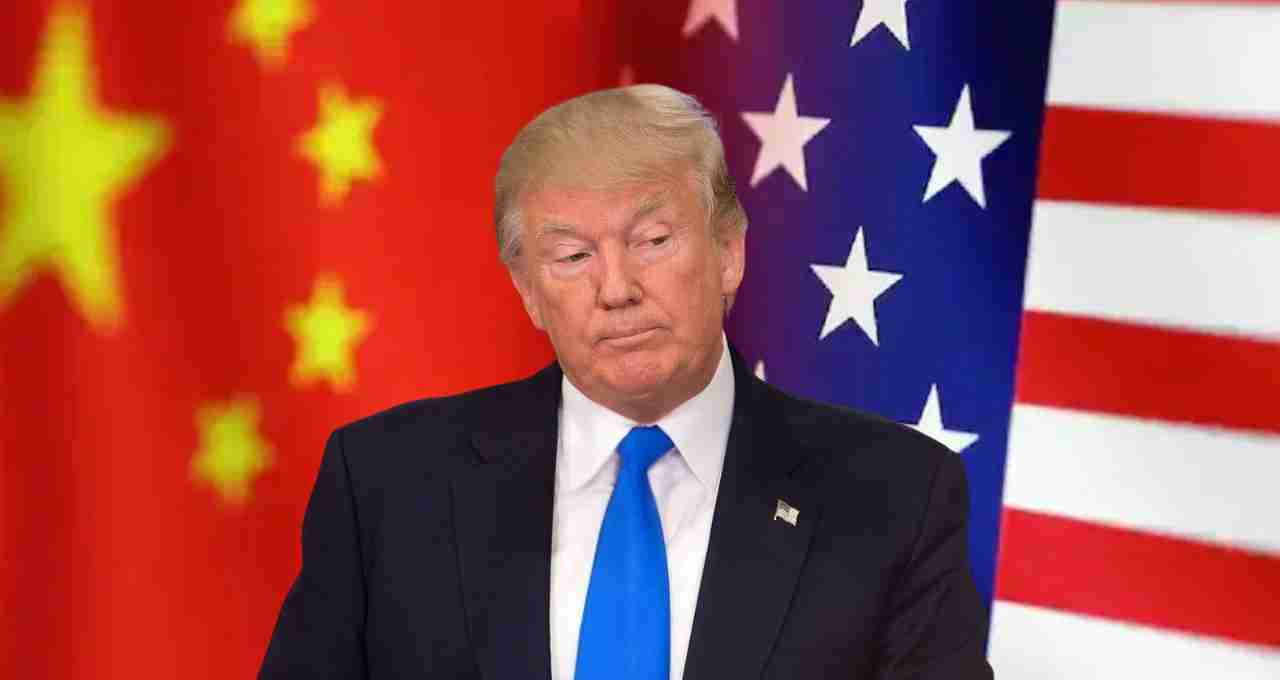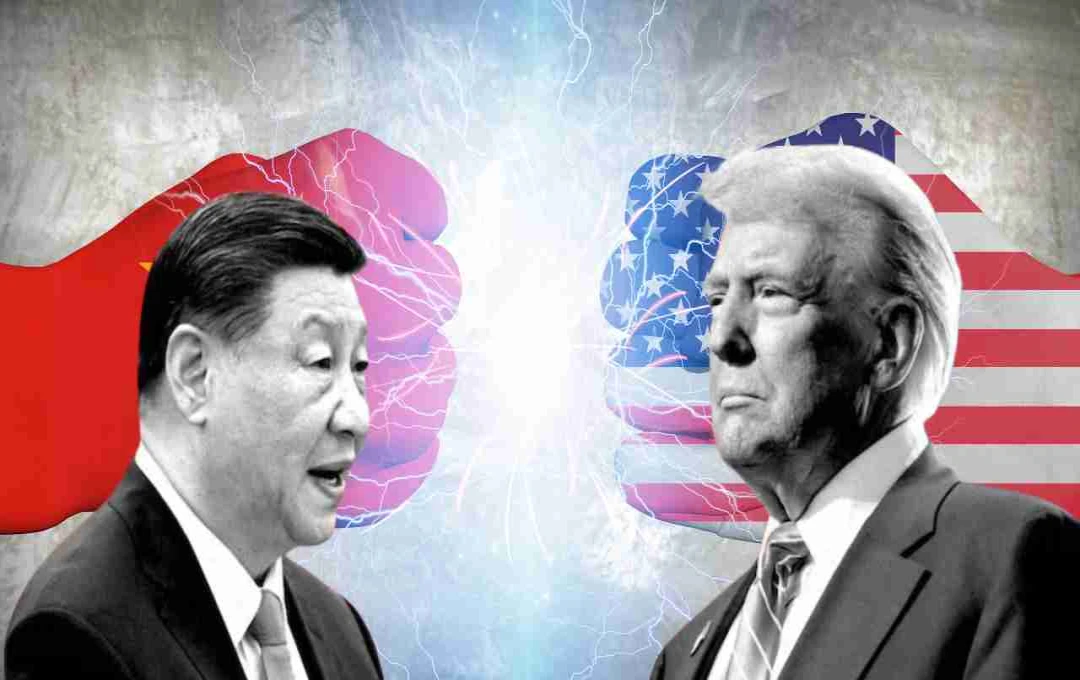A trade war has once again erupted between the US and China. Following President Donald Trump's announcement of imposing up to 100% tariffs on imports from China, Beijing declared that it "does not fear a trade war." Beijing accused the US of adopting double standards, leading to a significant drop in global markets and a loss of $2 trillion.
Trade War: The flames of the trade war between the US and China have reignited. On Friday, President Donald Trump announced new tariffs of up to 100% on goods imported from China. In response, China's Ministry of Commerce issued a stern statement, saying, "We do not want a trade war, but we are not afraid of one either." Beijing accused the US of discrimination and adopting double standards. China asserts that its rare earth export controls are legitimate under international law. This escalation caused turmoil in global markets, with American equity values falling by approximately $2 trillion.
Trump's New Tariffs
Trump posted on his social media platform 'Truth Social' on Friday, stating that all major imported products from China would now be subject to an additional duty of up to 100 percent. This decision comes after China increased its control over the export of Rare Earth Minerals.
These minerals play a crucial role in the global technology industry, and China accounts for 70 percent of their production and supply. China's decision has caused a stir among American and European tech companies, as it could deeply impact the supply chain.
$2 Trillion Loss in Stock Market
Following Trump's statement, a sharp decline was observed in the US stock market. Approximately $2 trillion in market value was wiped out in a single day. Investor concerns grew that this new round of tariffs could once again hit global trade. China described Trump's move as unilateral and arbitrary. Beijing stated that such decisions by the US are damaging the atmosphere for dialogue between the two countries.
China Declares Its Rules Legitimate
China's Ministry of Commerce has declared its new export control rules entirely legitimate and in line with international law. According to the ministry, these controls are not sanctions against any particular country but rather a step taken to strengthen its export system and maintain stability.
Under the new rules, foreign companies exporting products containing 0.1 percent or more rare earth minerals sourced from China will now require a license. The ministry has made it clear that companies adhering to the rules will face no issues with licensing. However, licenses will not be issued for products that could be used for weapons or military purposes.
US Expresses Displeasure

US Trade Representative Jamison Greer stated that China had not provided any prior notice of these export controls. He termed it a "power grab" or an attempt to demonstrate force. The US contends that China is using these policies to exert pressure on global markets.
Meanwhile, the European Chamber of Commerce has also expressed concern over China's move. According to the organization, the export license application process has become extremely slow due to the new rules, causing losses for several European tech companies.
New Dispute Over Port Fees
The tension has not been limited to rare earths alone. China has announced new port fees on US vessels, effective from October 14. Beijing described this as an "essential defensive measure" and stated it was a response to America's reciprocal tariff decision. China argues that US policy is disrupting the dialogue environment and could impact global supply chains.
Talks Continue Between Both Countries
Amidst this escalating tension, efforts for dialogue between the two countries are also ongoing. Three rounds of diplomatic meetings have taken place: in Geneva in May, London in June, and Stockholm in July. In a meeting in Madrid in September, both sides reached a preliminary agreement regarding TikTok divestment, but no concrete solution emerged.
A phone conversation also took place between Trump and Xi Jinping on September 19, but no consensus was reached on any conclusion. Trump had stated that the two leaders might meet during the APEC meeting in Gyeongju, South Korea, in the last week of October, but following China's new decisions, Trump has warned of canceling this meeting.
Trade War Transforms into a Battle of Technology and Security
This new economic clash between the US and China is no longer limited to trade taxes or tariffs. It has now transformed into a battle for technology, security, and supply chain control. Both countries are taking every possible step to protect their respective interests. Beijing states that the US is continuously trying to curb China's technological progress, while the US accuses China of seeking to maintain an unfair advantage in global markets through its policies.














